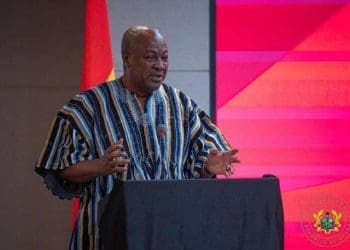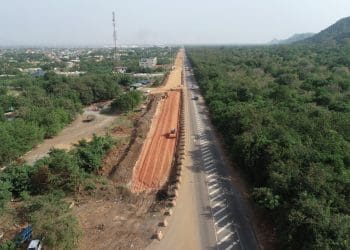Prime Minister of Côte d’Ivoire, Robert Beugré Mambé, has urged West African nations to adopt a new vision of prevention and mitigation as the guiding principles in the fight against emerging diseases across the sub-region.
Speaking on behalf of President Alassane Ouattara at the opening of the Second ECOWAS Lassa Fever International Conference (ELFIC 2025) in Abidjan, Mr. Mambé emphasised that no single country could confront these recurring threats in isolation.
“Cooperation and solidarity should be the fulcrum of our collective fight,” he declared, calling for multi-sectoral support among neighbours to strengthen regional health security.
The Prime Minister pledged Côte d’Ivoire’s commitment to take “rigorous and vigorous” action to safeguard the wellbeing of its citizens while contributing to a stronger continental response.

Toll of recurring epidemics
Mr. Mambé painted a grim picture of the toll of epidemics on the continent.
He noted that in April 2025 alone, more than 65 epidemics were recorded across Africa, with cholera killing over 6,000 people.
Lassa fever, endemic in parts of West Africa, is estimated to cause nearly 300,000 infections and 5,000 deaths annually, though experts believe the true burden may be far higher due to under-reporting.
He also highlighted the broader costs of such outbreaks: farmers losing livelihoods, families crushed by health costs, and fragile systems strained to the breaking point.
Survivors of Lassa fever, he noted, often face permanent disabilities, with one in three experiencing irreversible hearing loss.
“These diseases are not just a medical crisis—they are an economic and social one,” he said.
Complex socio-ecological threat
Joining the conference virtually, Ambassador Amma Twum-Amoah, African Union Commissioner for Health, Humanitarian Affairs and Social Development, described Lassa fever as a complex socio-ecological challenge that demands responses beyond the health sector.

Citing fresh data from Nigeria—the worst affected country—she said that between January 12 and 26, 2025 alone, authorities recorded 1,171 suspected cases, 209 confirmed cases, and 53 deaths, representing a case fatality rate of 18.3 percent.
She commended the Africa Centres for Disease Control and Prevention (Africa CDC) and the African Medicines Agency (AMA) for their efforts to improve laboratory capacity, strengthen surveillance, and accelerate the development of vaccines and treatments.
“Stronger regional cooperation and pooled resources are critical if we are to detect outbreaks early, contain them, and build resilient systems that protect every African,” she stressed.
Research and preparedness are key
Côte d’Ivoire’s Minister of Health, Public Hygiene and Universal Health Coverage, Pierre N’Gou Dimba, underscored the government’s growing interest in research as a tool to address Lassa fever and other hemorrhagic fevers.
He assured that the outcome of ELFIC 2025 would shape national policy and guide Côte d’Ivoire’s actions.
“This is the right time to confront health threats in our sub-region,” Mr. Dimba said.
“The conference sets the stage for multi-sectoral, cross-border collaboration to deal with hemorrhagic fevers.”
He added that the government has reinforced crisis management systems and that preparedness and response capacity has improved across regions of the country.
Global partnerships and innovation on display
The four-day conference, themed “Beyond Borders: Strengthening Regional Cooperation to Combat Lassa and Emerging Infectious Diseases,” has drawn scientists, policymakers, and development partners from across the world.
Organised by the West African Health Organisation (WAHO) in collaboration with CEPI and other partners, ELFIC 2025 has been described as the most significant international forum yet focused on Lassa fever.
The event includes ministerial roundtables, technical workshops, and exhibitions showcasing innovations in diagnostics, vaccines, and surveillance systems. Representatives from the World Health Organization (WHO), World Bank, African Development Bank (AfDB), German development bank KfW, and ECOWAS member states are among the attendees, reflecting strong global and regional political commitment.
A turning point in the fight against Lassa Fever
One of the central messages of ELFIC 2025 is that vaccine trials and large-scale epidemiological studies currently underway could mark a turning point in the fight against Lassa fever.
While no vaccine or antiviral treatment yet exists, the ongoing research is offering new hope to millions across West Africa who live under the shadow of the disease.
If successful, these trials could yield the first approved vaccine for Lassa fever and lay the foundation for a more resilient health ecosystem capable of withstanding future epidemics.
For now, the conference has injected renewed urgency and optimism into a decades-long battle. As leaders, scientists, and communities wait, the message from Abidjan is clear: the fight against Lassa fever will only be won together.












